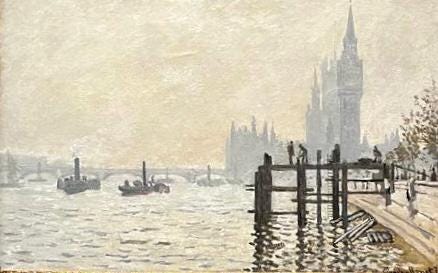Zone out to reduce emissions
All politics is local
Things have got political in the world of air quality. This week saw the expansion of London’s Ultra Low Emissions Zone, after the failed legal challenge from five London boroughs. Some neighbouring counties are reportedly refusing to put up ULEZ signs. And it’s hit political debates at local, regional and national level.
The ULEZ was first proposed in 2014 by Boris Johnson, then Mayor of London, and was introduced by his successor Sadiq Khan in April 2019. In October 2021 the ULEZ expanded to cover the area between the North and South Circular roads, and the latest expansion covers all London boroughs. There is a lot of information (and misinformation) out there about the impacts - we thought this round up was good. This explainer also tries to examine all the competing claims.
Primary evidence
Louise’s first awareness of the scheme was during an assembly with a local primary in 2019, when the local police officers she was presenting with befuddled the children with references to ULEZ. Since then it’s become front page news and the talk of neighbourhood fora. The controversy has rumbled on including multiple protests by Londoners who believe their livelihoods are being threatened. We even witnessed one during Khan’s book launch.
While a lot of the concern seems to focus on the impact on poorer Londoners (as they may struggle to replace non-compliant vehicles and/or pay the £12.50 daily charge), we think it’s worth remembering that the impacts of air pollution are also greater for poorer communities. We’ve covered the links with inequality before, but we keep seeing more and more research confirming this. For instance, this research from York University confirms the link with the deprivation index. And globally, this shows the burden of reduced life expectancy from air pollution lands disproportionately on the poorest countries and regions.
There is also a lot of support available, from the extended scrappage scheme to the announcement from HMRC that self employed drivers can reclaim any ULEZ charges exclusively for purposes of their trade. Although not necessarily helpful for those concerned London residents, similar charges in other big cities are much higher (Glasgow - £60, Paris - €68). We don’t want to minimise the concerns that people have about the ULEZ, especially if it makes the difference to them making ends meet or not. But given the health emergency of air pollution, we applaud measures to tackle it.




In Glasgow, there is no £60 charge. Non-compliant vehicles don't have the option to pay a charge, they just get a penalty, which starts at £60 and doubles with each further infringement to a maximum of £480
https://www.glasgow.gov.uk/23026